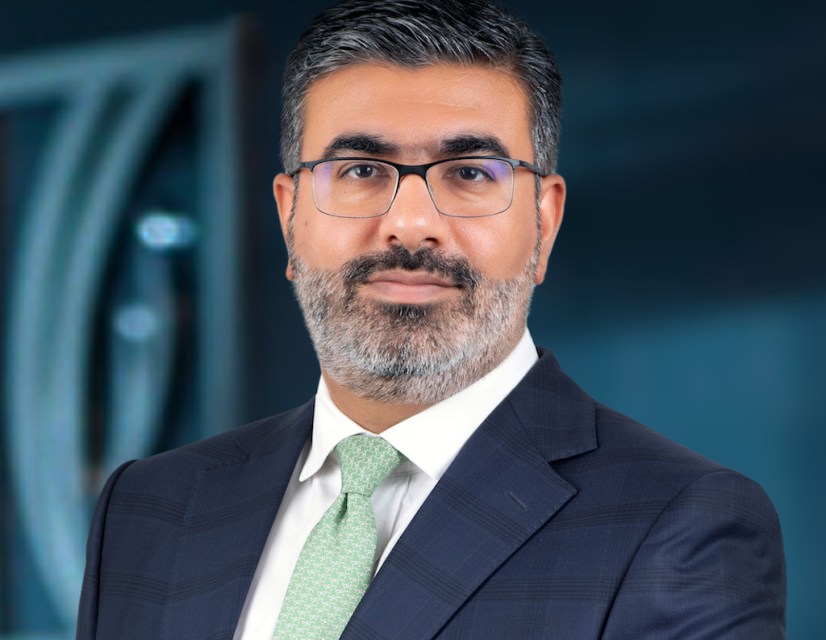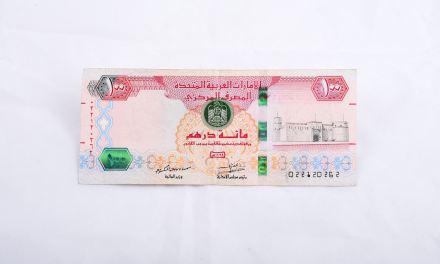The Middle East is one of the world’s fastest growing markets in the banking and Fintech sector and continues to undergo tremendous overhaul, both in terms of regulatory requirements and enhanced technology, increasing the range of financial products and services on offer in the region.
At the same time, recent data suggests consumers are increasingly balancing their loyalty to legacy providers with their desire for alternative user experiences. Traditional and digital-first finance options have become intertwined, and instead of giving up either one, consumers are opting for multiple financial services providers to meet their needs.
“There is no doubt that banking services and the technology within the banking industry is changing,” Neeraj Makin, Senior Executive Vice President at Emirates NBD, told Seamless Xtra at the Seamless Middle East show, in Dubai, recently.
“Since the last few years there there has been a lot of talk of the disruption Fintechs would cause for the traditional banks, which further accelerated the digital transformations initiatives by the banking incumbents. The Fintechs have enabled banks to start thinking differently, they are bringing something new for banks to adopt and learn from. I think there’s a place for both of them out there. Banks in this region have got their act together over the last few years and if we look at the digital banking landscape across the region there is a whole ecosystem developing alongside while the regulatory landscape takes shape.”
Enhancing digital systems
Neeraj points to the digital identity systems in both UAE and Saudi Arabia and, in fact, next year marks two decades since the Federal Authority for Identity and Citizenship (ICA) was established in the UAE. In the time since, the Emirates ID has been modernised at various stages and is currently the only identity document aside from passports, accepted by all government agencies in the UAE. In 2019, for instance, the Central Bank of the United Arab Emirates announced that all personal bank accounts in the country would require a valid Emirates ID allowing banks to better understand its customers and raise the standard of service in the country.
The Kingdom, meanwhile, continues to enhance its own digital ID system with Saudi Arabia’s General Directorate of Passports launching a digital identification service for expat families earlier this year. The new service means any time photo ID of family members is required by security officials in Saudi Arabia it can now be presented on a smart phone and paper identification is no longer needed. Such developments are part of the greater digital ID ecosystems that continue to be regularly updated within each of these countries.
“The local Emirates ID and the Nafaath platform for customer authentication in Saudi Arabia really allows digital KYC and authentication to be done in a seamless manner. Once that is done, it enables the participants whether it be the banks or any other FinTech or institution to do the KYC and onboard the customer seamlessly while also enabling digital transaction,” says Makin.
“In Egypt, however, digital KYC is one of the big stumbling blocks right now. Yes, they have an ID system, but it is not digital. In terms of innovation and technology and being able to service the customer’s needs this has to be one of the key next steps. If that ecosystem is available, then the progress is faster, whether it be for a startup or FinTech or a large bank or even a challenger new bank coming out of a large bank.”
Regulatory support
According to Makin, whilst there are certain challenges that come with having to develop tailored products or services to local regulations, the Middle East region does have the benefit of being able to innovate quite quickly compared to other parts of the world.
“I think it’s actually fairly advanced here. I think in terms of both the ecosystem and regulatory support, taking the examples of UAE and Saudi Arabia, they are moving ahead at a much faster pace than probably some of the other regulators around the world. And I think that the platform has been created because you don’t have too many complex banking systems so it’s faster and easier to do.”
He gives the example of his own bank Emirates NBD, a mid-sized bank from a global perspective, which has been able to transform its IT architecture relatively quickly compared to some larger banks, globally, that might need greater investment over a number of years.
“For instance, we’re probably the only bank of our size in the world, which is one hundred percent cloud native. We have launched a new API portal designed to serve as an ecosystem for Fintechs, developers, and corporate clients, enabling them to expedite the development of cutting-edge financial solutions.”
Integration and collaboration
“We’ve tied up with the DIFC Innovation Hub while we also have other tie ups with Plug and Play, ADGM in Abu Dhabi and Accenture Fintech Hive for Fintechs to come and partner with us. These Fintechs in the process also benefit from what we can provide in terms of access to our customers, mentoring and more. Being in this region has certainly helped in terms of integration and experimenting with innovation.”
In recent years, as banks have become more digitalised several new technologies have been adopted from other fields, from blockchain to facial recognition to advanced analytics and artificial intelligence. Particularly, in the Middle East, the sector has become increasingly competitive furthering the need for financial institutions to stay on top of the latest innovations. Yet, that aside, Makin notes that banks must remember that ultimately, financial services is one area where things must be done responsibly.
“Competition is good for the customer in the end, but ultimately, I think financial services is one area where you have to do stuff responsibly and regulators are increasingly pushing the bar up on that front. You don’t want to mis-sell a product or lend to a person who is overburdened with the debt or not fit for the product. You have to make sure that a preliminary assessment is done on the customer’s requirements and that the customer’s data is protected. You also have a duty as a bank to work with the regulatory agencies to make sure that your channels are not being used for illegal activities.
“You have to keep in mind all regulatory requirements which include a robust implementation of recommended measures and mitigation of money laundering and financial crime risks. So, it’s not so easy for anyone new to come and do this without having the relevant infrastructure set up. Competition is tough but I think the path forward is more of collaboration between these startups and fintechs and banks. Banking as whole is a multitude of products and services and we can each leverage each other for the ultimate benefit of the customer.”










